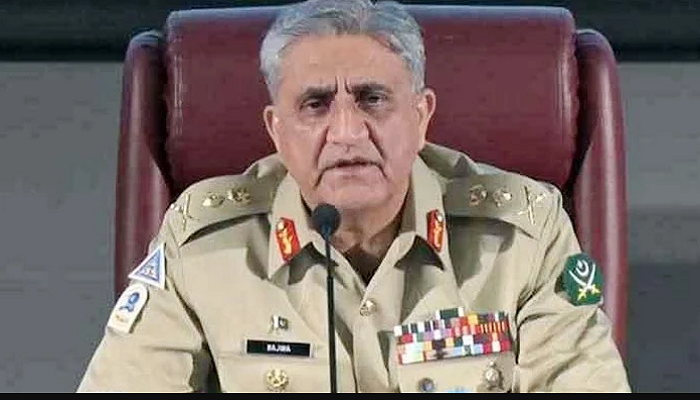Local and international analysts call Army Chief General Qamar Javed Bajwa Pakistan’s Democratic General as he has always sought to ensure that the military confined itself to the role defined for it under the constitution.
The Chief of Army Staff (COAS) General Bajwa will be retiring by the end of November after commanding the Army for six years.
A career infantry officer belonging to the Baloch Regiment, Bajwa was chosen as Pakistan’s 16th Chief of Army Staff in 2016 by then-Prime Minister Nawaz Sharif. In 2019, then-Prime Minister Imran Khan gave Bajwa a three-year extension citing reasons related to the regional security environment.
Bajwa has kicked off the “farewell visits” and put to rest fears of an 11th-hour surprise decision to hold on to his post. Many Pakistanis are praising him for sticking to the retirement plan, instead of seeking another extension.
Pakistan’s internal security improved significantly under Bajwa. His vision for a peaceful country was pitched in the form of the”Bajwa Doctrine” which envisioned a stable Pakistan at peace with its neighbors.
During his term, the Pakistan Army launched Operation Radd-ul-Fasaad in February 2017 to not only clear the tribal areas of militant sanctuaries but also eliminate terrorist sleeper cells across the country. One of the major successes of the operation was the fencing of the Afghan border. It is because of the completion of the fencing project that Pakistan has been able to suppress the tide of militant attacks from Afghanistan after the withdrawal of international troops from the country last year.
Under Bajwa, Pakistan took firm action against militant groups that undermined Islamabad’s diplomacy and mediation with the neighboring countries. The action led to Pakistan’s removal from the Financial Action Task Force (FATF)’s grey list. Moreover, it also opened space for India and Pakistan to strictly observe the ceasefire agreement along the Line of Control (LoC) and other parts of the international border.



















